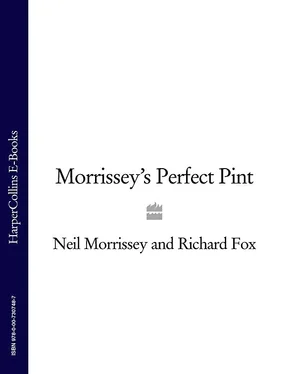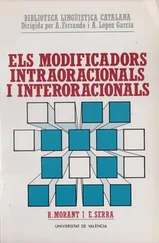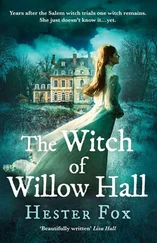Neil Morrissey
&
Richard Fox

MORRISSEY MAXIM
There’ll be plenty of time to drink Kaliber when you die.
Introduction Morrissey’s Perfect Pint Neil Morrissey & Richard Fox
‘ For a quart of ale is a dish for a king .’
The Winter’s Tale
So Foxy and me are in this pub: the staff really wish we weren’t there, the beer tastes like badger poo, the food’s been through Abu Ghraib and the music is so loud our teeth are bleeding. I shout at Foxy, ‘Mate, it doesn’t have to be like this’, and the picture of the perfect pub floats into our minds. At this moment the idea is born to set up our own pub and brew our own beer in an on-site microbrewery. Bloke Heaven: beer, pub and home become one. ‘Fancy a pint?’ ‘Yep.’ ‘Love, just nipping downstairs. Be back in an hour …’
We need a different kind of pub now to the pulling joints of youth. Pulling is still on the cards, but in a more genteel way: tugging, let’s say. Pubs need to reflect our age and our desire for the three Qs: quality food, quality beer and quality service. This is what The Perfect Pint is all about.
The problem is that our generation created the monster of the high street chain bar. It is exactly what we wanted when we were 18 (instead of those sticky carpet horror shows of the 70s and 80s) but the monster has escaped and killed every other kind of boozer in its path. The opportunity for beer drinking, as we now want to do it, is getting squeezed out by these characterless, sterile vomit hovels. At this point in our lives we want something different.
Pubs are closing their doors at the rate of nearly 60 a week. But these ‘establishments’ where you get crap service, crap beer, crap wine, crap food, crap atmosphere and a crap fight at the end of the night are taking over the high street. Nothing about them has anything to do either with pubs or continental cafés – they’re the spawn of corporate marketing departments interested in creating a template for ‘customer experience’. Britain’s attempt at sophisticated la-di-da café culture has replaced sticky carpets with sticky stripped wooden floors and cardboard food with cardboard canapés. The pub’s evolution seems to have missed out a stage, the stage in which there is a place to drink, in a community, with decent local food and decent local beer. And good service!
The plan, then, was simple: find a pub, buy it, renovate it to the way we want a pub to look, brew our own beer and cook great food. In other words, create the perfect pub serving the perfect pint. Of course, the logistics are staggering, it’s costing us an arm and a leg and there are no guarantees that the whole venture won’t go tits up. But we believe that people respond to quality, and that’s what we’re all about. Great beer, great food and a great atmosphere to drink and eat in.
Our first attempt at a brew is described on page 15. While we were waiting for it to ferment, we decided to write down everything we love, hate, know and don’t know about beer, pubs, women and life. And drinking. Oh yes, drinking. This is the result – a beer book for blokes. Keep it in the little boys’ room.
Beer Morrissey’s Perfect Pint Neil Morrissey & Richard Fox
Drinking
The Pub
Food
‘ If God had intended us to drink beer, He would have given us stomachs .’
David Daye
Beer in history Morrissey’s Perfect Pint Neil Morrissey & Richard Fox
Beer, when you get down to it, is about life. The kind of beer you drink (or don’t), where you drink it, the mates you drink it with, all define you more than your job or your clothes. Beer has a history and a culture that reaches right around the world and way back in time to Ancient Egypt and then some. It was with us at the dawn of civilisation and will be around until we end up in the gutter of this or another planet.
But what do we know about it?
Morrissey:Beer is the national drink of Britain, about the only thing that will always come in imperial measures (milk, petrol, anyone?) and thank God for that. And thank God for natural yeasts. Fermentation was probably discovered accidentally, when some stored grain got wet, thereby softening the kernel of the grain and allowing yeasts in the air to do their magic.
Foxy:So beer is also, contrary to widespread opinion, the reason we’re civilised. The need to store grain to make beer led to settled communities, where the art of brewing was developed, and we could all get down to some serious drinking – excellent!
M:Beer brewing, from barley, was actually well-established in Britain by the time the Romans got here in the first century ad. The Roman Emperor Julian thought beer smelt disgusting compared with wine – like ‘goat’ compared with ‘nectar’. Maximus Toolus we call him.
Anyway, making wine was a no-no in Britain because of the climate which is much better suited to growing grains than grapes. It is to our eternal chagrin that it was Germans, in the form of colonising Anglo-Saxons, who brought the beer habit with them to England in the fifth century ad. The Germans! I suppose we should be grateful that it wasn’t the French. Anyway the Germans called it ‘ol’ or ‘ale’ and from about the sixth century beer, from the Latin word ‘biber’, meaning drink.
F:I knew you had a good education. Right through the Dark and Middle Ages, making beer was quite rightly seen as an essential part of everyday life. It was safer than drinking water because it had been boiled, and provided nutrition in the form of carbohydrates and protein when food was scarce. Brewing was women’s work, and ‘alewives’ prepared the beer alongside the bread, until the 16th century, when commercial brewing and the influence of the Church prevailed.
M:People don’t realize what a big part the Church played in the development of beer. They brewed beer to refresh pilgrims, and licensed binge drinking among rural folk to help them let off steam safely and raise money. Three-day sessions weren’t uncommon! Monasteries brewed untold amounts of ale and monks drank a skinful. The daily allowance for monks at Burton Abbey in the year 1004 was two gallons (16 pints) of ale!
F:That explains why they took brewing to new heights of sophistication – they needed advanced techniques to guarantee copious amounts of quality product. The most significant development was the use of hops which gives beer its ‘bitter’ taste but, more importantly, preserves it. Dutch traders brought beer to Britain and by the 1520s was here to stay. The basic recipe of beer as we know it was created: barley, yeast, water and hops.
M:Celebration ales were brewed to mark everything! ‘Bride-ales’ or ‘bridals’ (or ‘bridles’ if the wife-to-be was a bit of a horse) were made to celebrate weddings. They were brewed by the Lucky Lady herself, and sold to raise a dowry for the couple for whom, in those days, ‘life meant life’. Eye-weepingly strong ‘groaning-ales’ were fermented, often for seven or eight months, to help mothers-to-be through the painful birthing process – and the expectant fathers, of course. The baby was then often washed in the beer because …
Читать дальше













